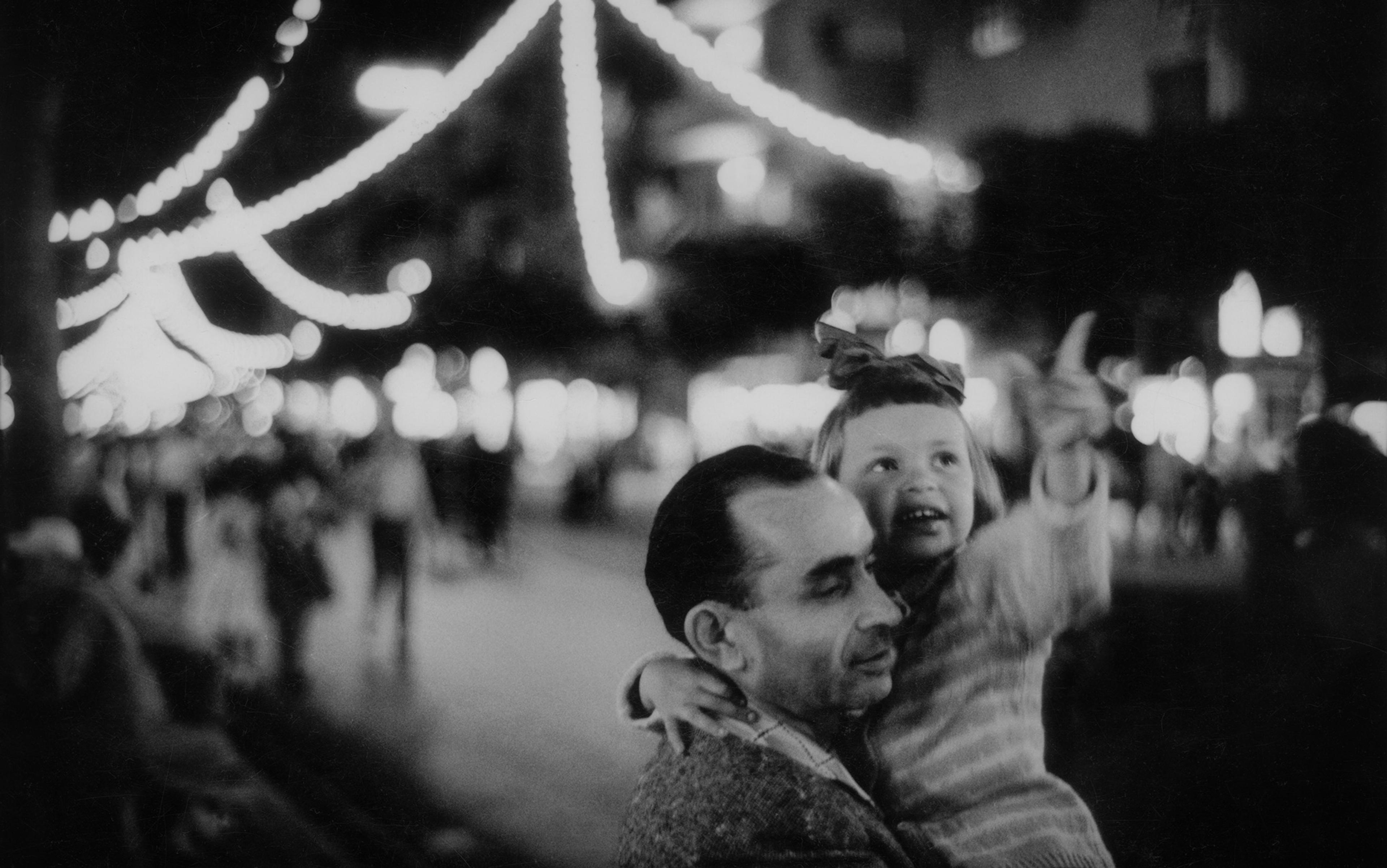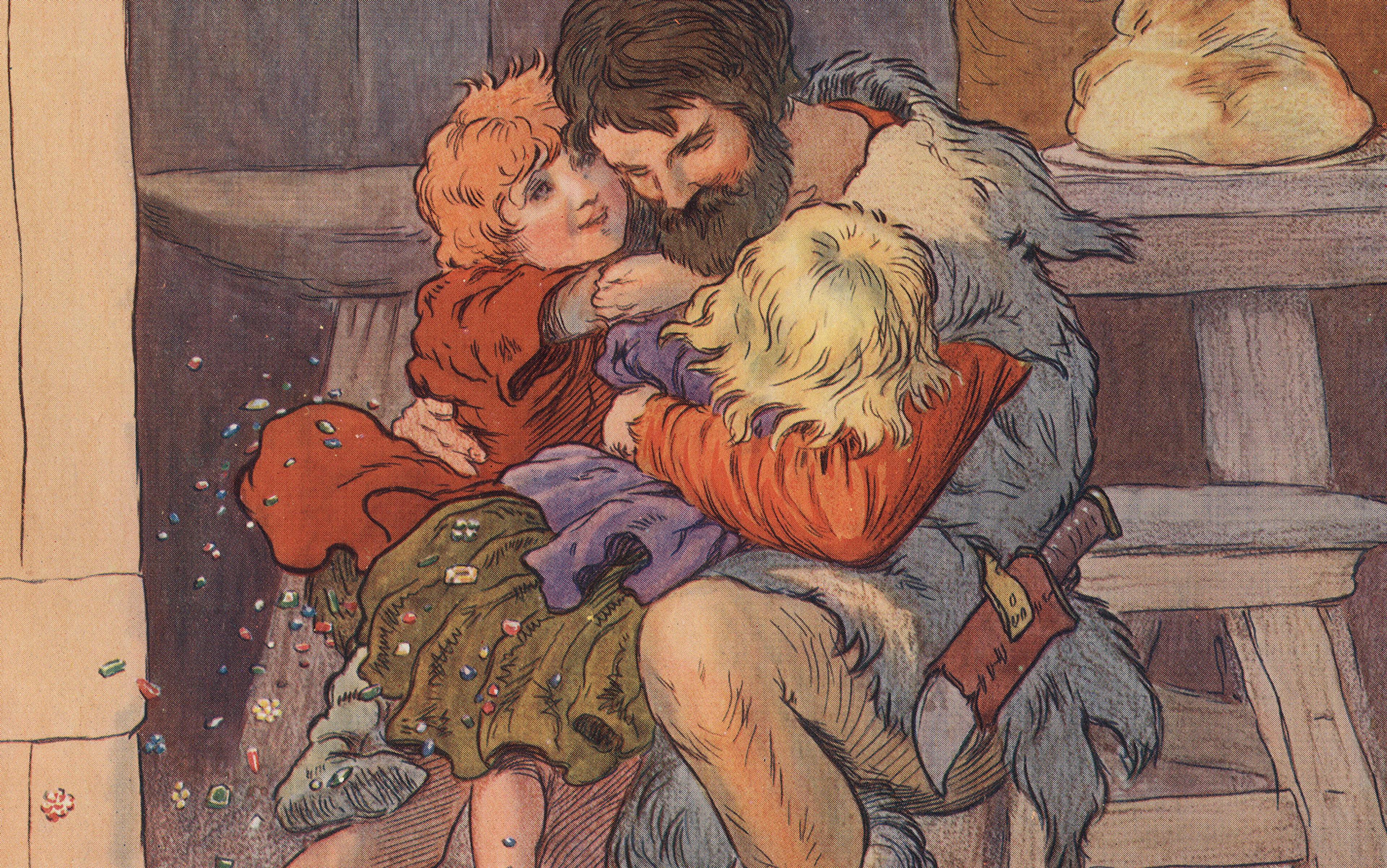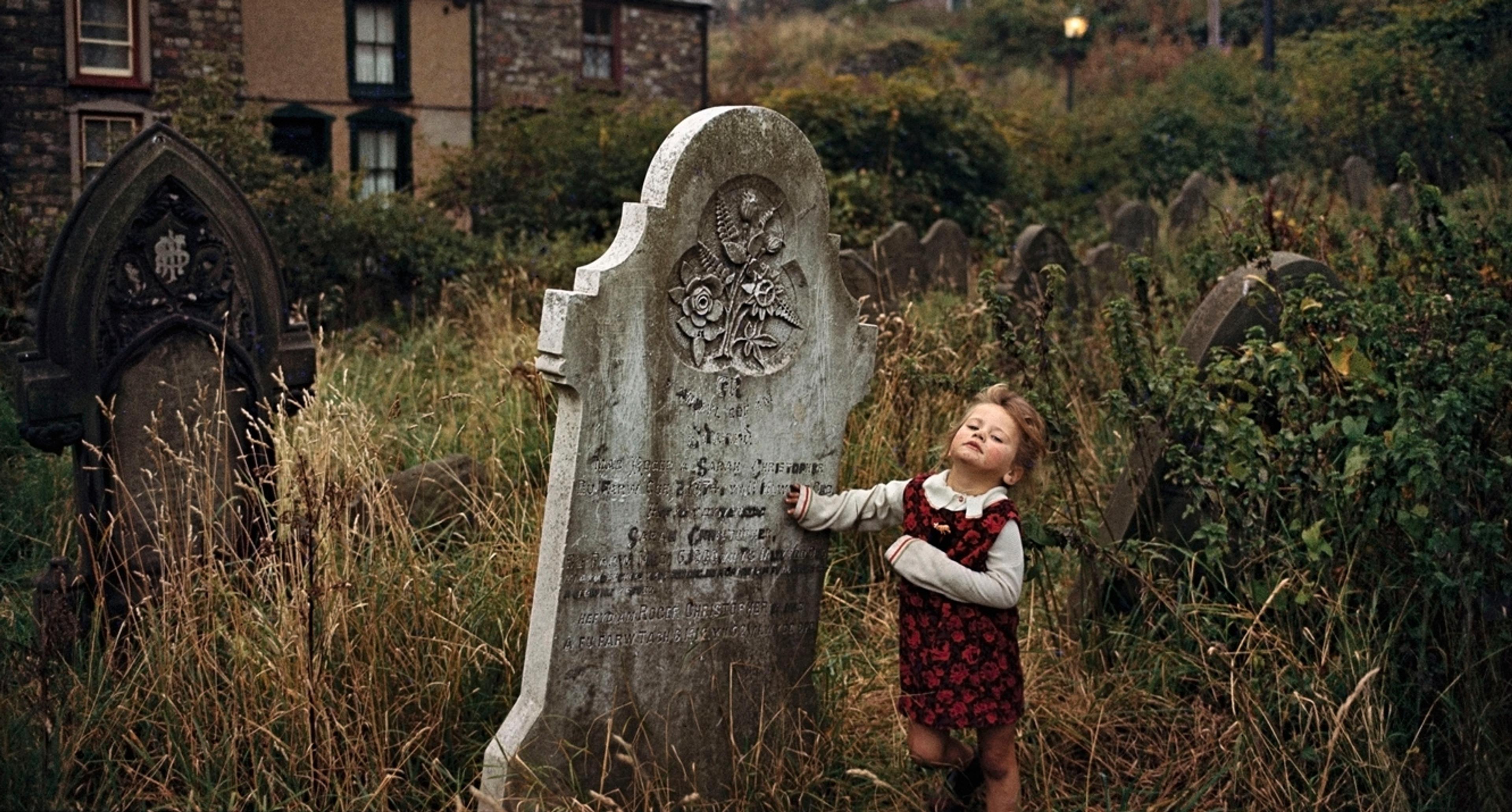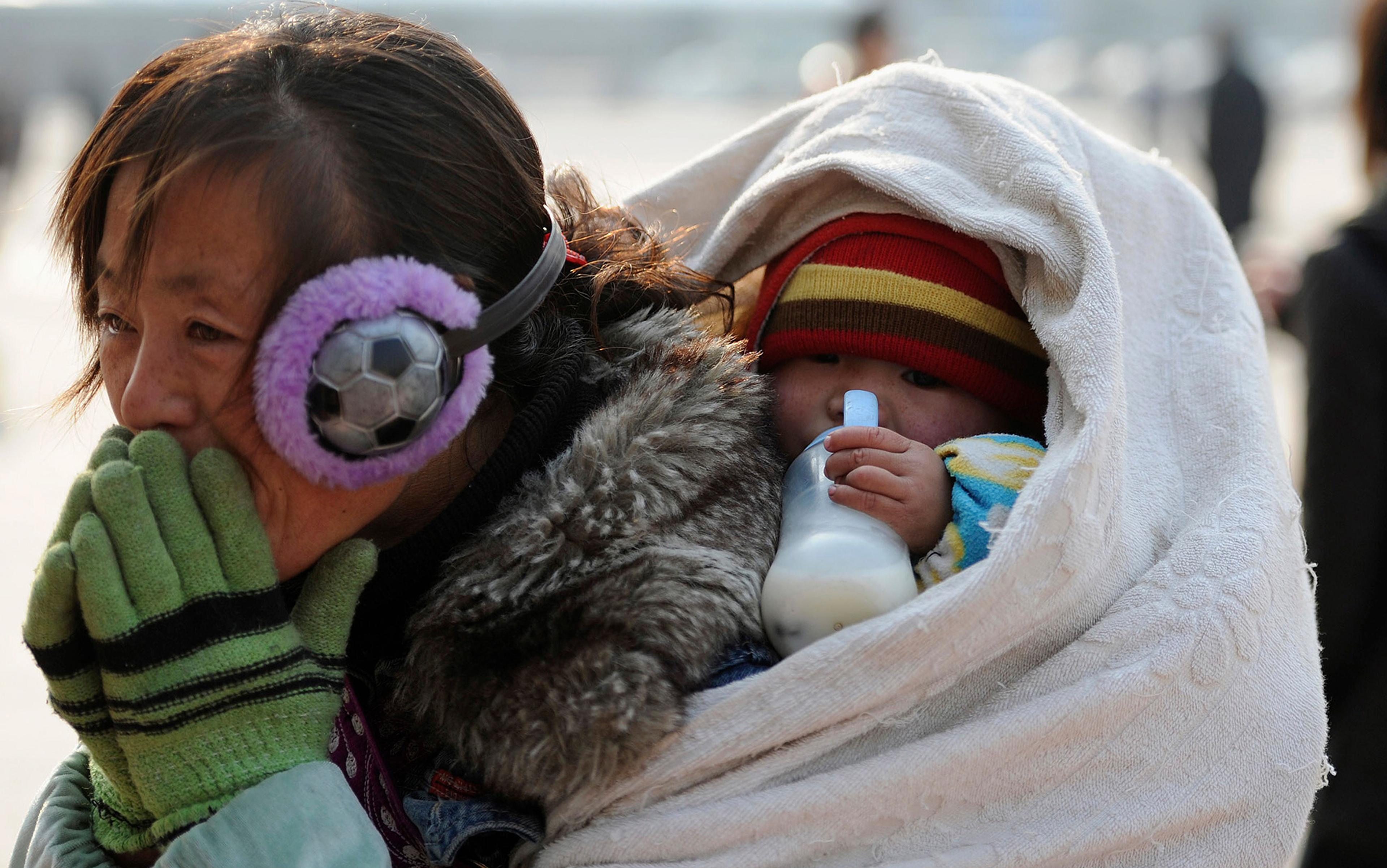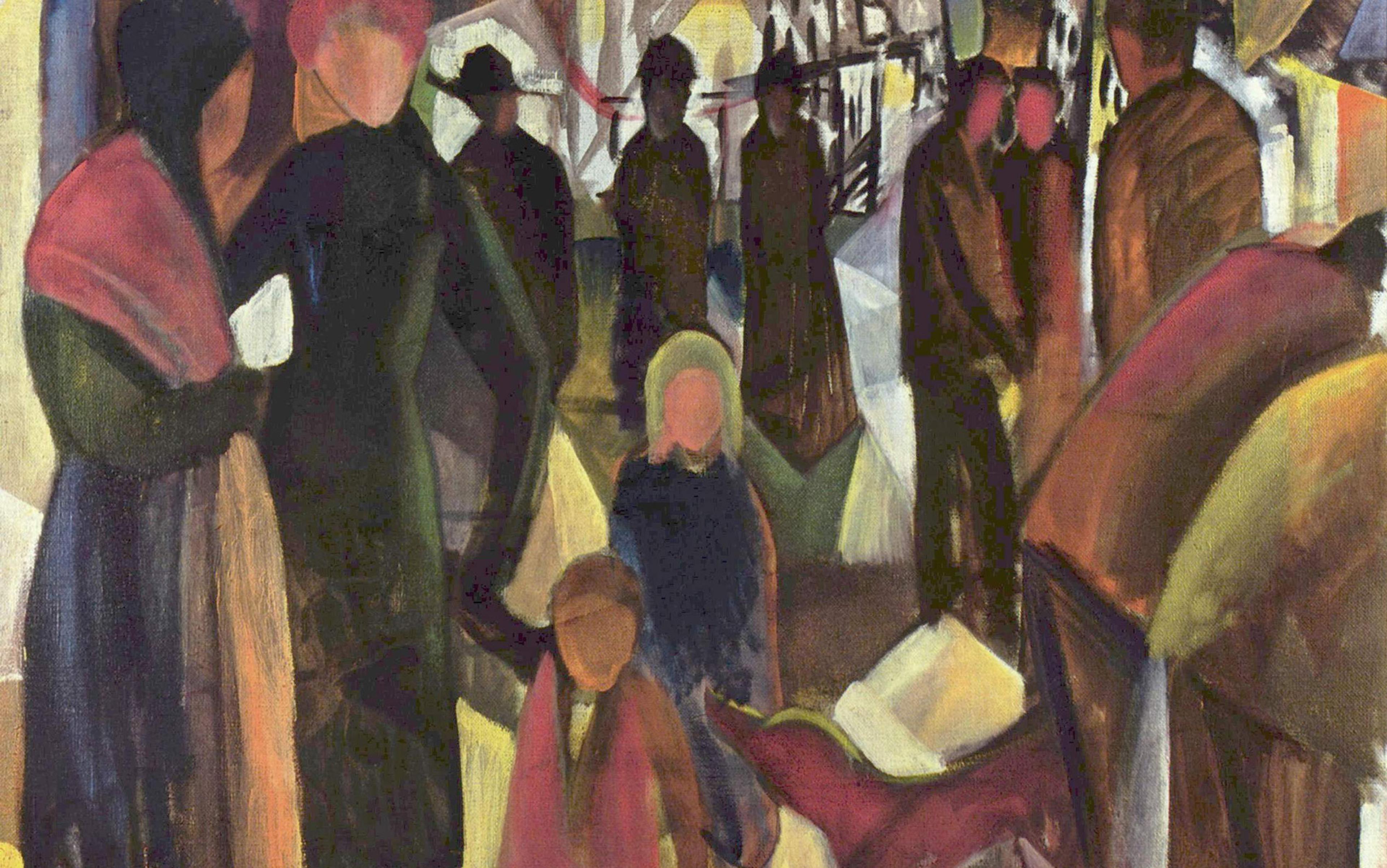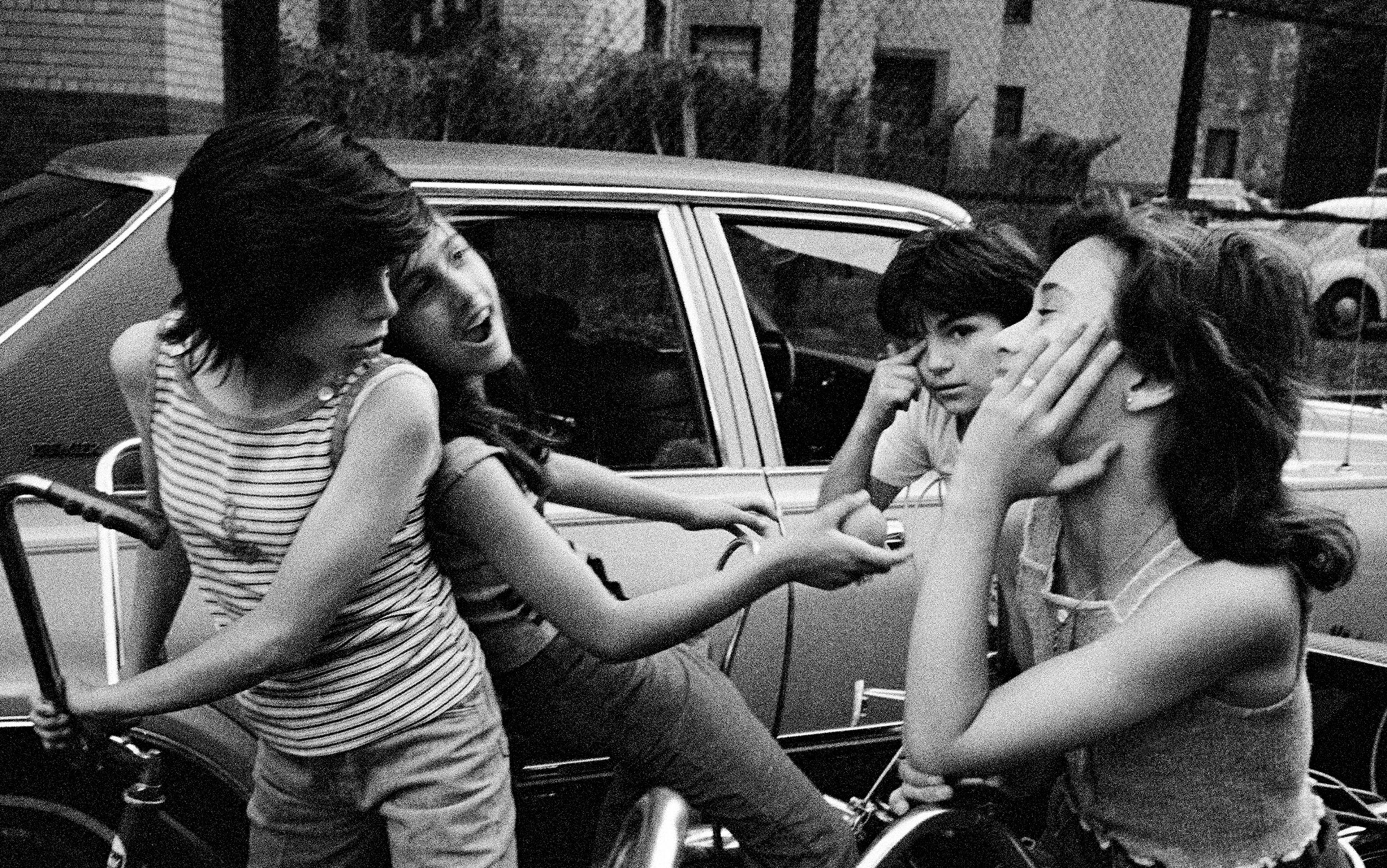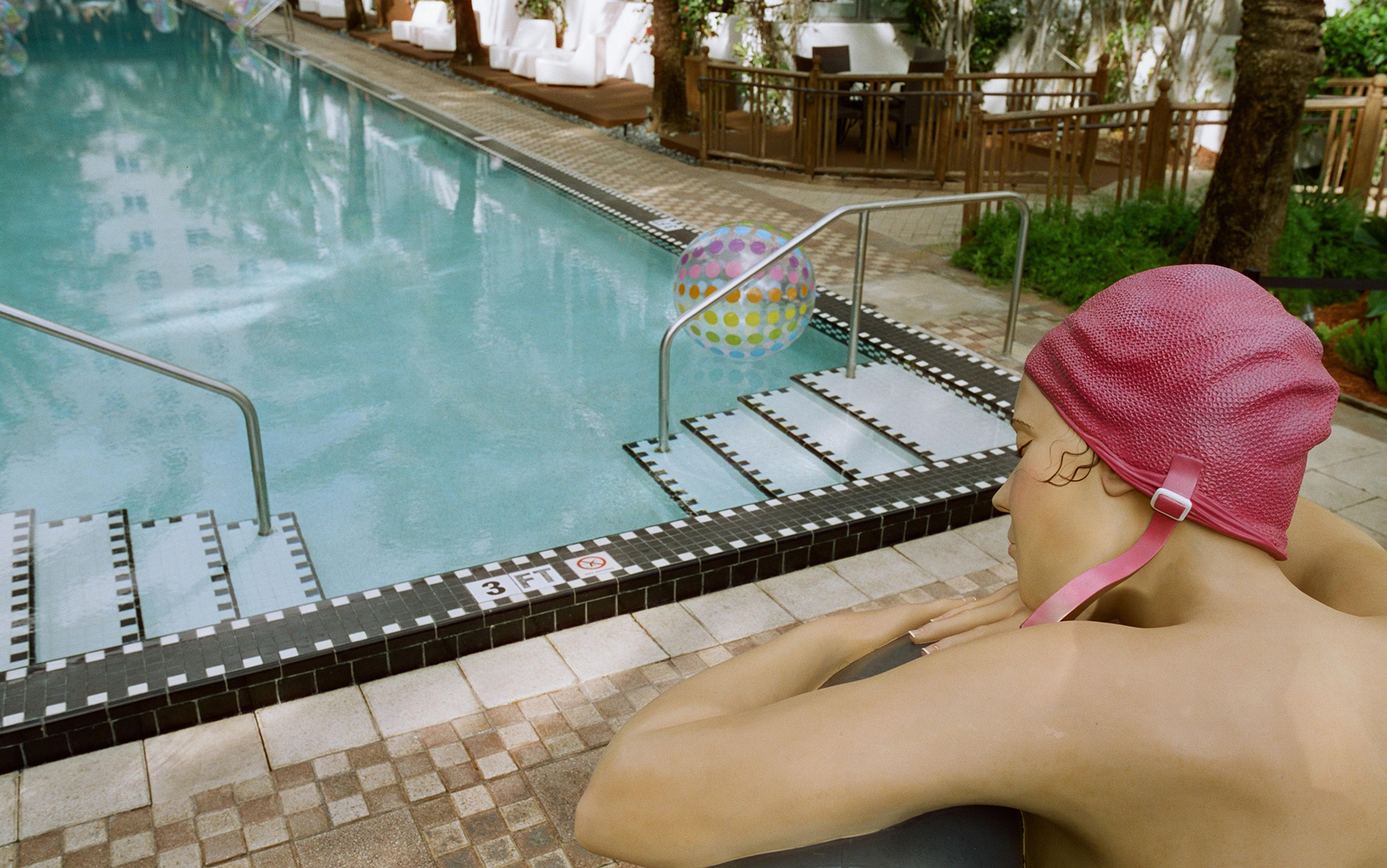A meeting of existential philosophers tends to be the spectacle one might expect: black berets whisper in hushed tones about death and anxiety; nervous hands and pursed lips smoke cigarettes in hotel rooms; throats are cleared to deliver scholarly papers to the chosen few. (What exactly would ‘The Patency of Art: Transubstantiation, Synesthesia, and Self-Touching Touch in Merleau-Ponty’s and Nancy’s Aesthetics’ be about?) There are, however, spectacles you will rarely see: the kind that children leave in their wake.
This is a gathering of predominately male philosophers, and male philosophers are notoriously bad fathers. Of course, there are exceptions, but think of Socrates shooing his family away in his final moments so that he can have alone time with his philosophical buddies, or, even worse, Jean-Jacques Rousseau writing Emile (1762), a tract about raising kids, while abandoning his own. Instead of being bad parents, many of the titans of European existentialism – Friedrich Nietzsche, Søren Kierkegaard, Jean-Paul Sartre – remained childless.
We defied the odds: we are both philosophers, existentialists even, and both of us are fathers. How this happened was not exactly noble or well-considered: honeymoon babies, unexpected, but welcome, babies – that’s how we became fathers. And our tenure as parents has often been a haphazard mess, anything but thoroughly philosophical. Occasionally over the years, though, we’ve drawn on the wisdom of the fathers of philosophy, even the childless fathers of existentialism, and in so doing have become marginally better parents.
First, a word about childlessness: it would be easy to chalk up an existentialist’s avoidance of fatherhood to his guiding ideals of autonomy and freedom. We are, according to Sartre, ‘condemned to be free’, and this strange life sentence means that we must at every point choose our own path forward. This doesn’t suggest that one can’t take influence from another but, ultimately, individuals are solely responsible for the choices they make. The imperative to have children, one that remains widespread, should not therefore have the usual traction for an existentialist. He or she is wholly free in declining to procreate and raise a brood of kids. For an existentialist, there is no shame in this. None whatsoever.
Many philosophers steer clear of child-rearing because of the sheer difficulty of parenting well. ‘Raising children is an uncertain thing,’ the pre-Socratic philosopher Democritus tells us. ‘Success is reached only after a life of battle and worry.’ Many philosophers – many people – are not well-equipped for this battle. Some know it, and opt out. In our culture, it is tempting to interpret avoiding parenting as a refusal to be appropriately responsible. While there is nothing particularly wrong about this interpretation, it exerts a type of pressure that leads many to become horrible parents. Many adults become parents as a matter of course, rather than as an active choice, despite the fact that they might not be wholly prepared or willing.
‘Art thou a man entitled to desire a child?’ Nietzsche asks in his childlessness in Thus Spoke Zarathustra (1883-91). ‘Art thou the victorious one, the self-conqueror, the ruler of thy passions, the master of thy virtues? Thus do I ask thee.’ For many people, including Nietzsche, reticence and refusal is the most appropriate response to such difficult questions. In the Republic, Socrates comments that the reluctant ruler is the only one who should lead the polis, and the same might go for parenting: only those who fear and tremble in the face of fatherhood are worthy of assuming its infinite responsibility. Perhaps being scared and running away just means that you are paying attention.
But let’s pretend that an existentialist, after careful consideration or random accident, becomes a father. How can he remain a parent without jumping philosophical ship? According to his essay Anti-Semite and Jew (1946), the core of existential freedom is what Sartre terms ‘authenticity’, the courage to have ‘a true and lucid consciousness of the situation, in assuming the responsibilities and risks it involves, in accepting it in pride or humiliation, sometimes in horror and hate’.
Here is what a ‘true and lucid consciousness of the situation’ of fatherhood might resemble: you watch wide-eyed as your beloved pushes a stranger out of a bodily orifice that seems altogether too small for the labour; when the gore is cleaned up, the stranger becomes your most intimate companion and life-long dependent; existence, from that day forward, is structured around this dependency; and then, if everything goes well, the child will grow up to no longer need you. At the end of the existential day, your tenure as a father will end in one of two ways: either your child will die or you will. As Kierkegaard writes in Either/Or (1843): ‘You will regret both.’
Parenting authentically also involves coming to terms with what children are really like. They are not angels or hellions, sweethearts or monsters: they are little people who, as Kierkegaard suggests, are both angelic and beastly. This banal platitude expresses a deep truth about the human condition, namely that we are the sorts of creatures, perhaps the only ones, who possess radical freedom. Most of adult life is geared to ignoring this aspect of human nature, and modernity sets artificial constraints on behaviour, pretending that these constraints are God-given. Of course, for an existentialist, as for a child, all of this is nonsense – nothing is God-given. The boundaries that define civilised life are, more often than not, self-imposed, which is to say radically contingent. A child knows, in a way that most parents intentionally forget, that the range of life’s possibilities is always profoundly open. And the difficulty of life is to choose for oneself which possibilities should become actual.
Fatherhood has traditionally been about limiting a child’s sense of possibility. The expression ‘father knows best’ has a correlate: ‘child does not’. Obviously, there is something right about this position: a toddler rifling through a detergent cupboard should be stopped. Children occasionally explore possibilities that are harmful – physically and psychologically – and, as parents, it is our place to keep tabs on the threat that existential freedom poses to our kids. But existentialists such as Nietzsche suggest that our overblown risk-aversion doesn’t track the actual danger of a particular situation, but rather our own sense of anxiety.
The more we argue that it is about the kids’ safety, the more obvious that it’s all about us
Anxiety and dread – in everyday life, they are assiduously avoided. More specifically, we avoid the objects (spiders, exams, shots, clowns) that spur us to anxiety and dread. These experiences, however, have very particular meanings for European philosophers of the 19th and 20th centuries, and these thinkers generally agree that they are not the sorts of things that can or should be avoided. According to Kierkegaard, dread has no particular object or cause, but rather emanates uncomfortably from the very pit of being human. It is, in his words, the ‘sense of freedom’s possibility’. Imagine all the possibilities that you have in life, now multiply them by a power of 10, and then another power of 10, and then finally let yourself consider the many options that you have from a very young age forbidden yourself. Those are the ones that we should really talk about. Now, whatever you are feeling – that is something like a weak, attenuated sense of freedom’s infinite possibility. The routine of adulthood usually numbs us to this sort of dread, but children do their best to remind us of its force.
Why do we put limits on our children? Why is a daughter not allowed to climb that tree or jump across a river? Why is a son discouraged from wearing a dress or forced to play ice hockey? Why are neither daughters nor sons allowed to run away? Father knows best. Of course, virtually all fathers think that they are operating in their child’s best interests, but we have been at this long enough to know, if we are honest or authentic, that most of us protect our children, at least in part, because we are avoiding or coming to grips with our own Kierkegaardian anxiety. The more we argue that it is about the kids’ safety, the more obvious it is that it is all about us. Children remind us, in very delightful and painful ways, what it is to be a person. Their untethered curiosity, naïve bravery, complete lack of shame, remind their parents that they too, at one distant point, had these possibilities – and they had no small amount of trouble doing away with them.
Both of us have daughters. We remember the dread, or anxiety, of watching them climb the jungle gym. At a basic level, we thought that we were simply worried about compound fractures but, over the years, it is clear that what we really feared was losing control, relinquishing some of the mastery that we’d acquired over freedom’s dreadful reach. But what our children remind us is that we really have no mastery over freedom. Daughters and (we can only assume) sons have a proclivity for the full range of human potentialities, including the disastrous ones. And this is the truth about children, as far as we see it: parents hinge their self-conception to little beast-angels who are free to self-destruct, but we would like to think that this is not the case. Parenting a toddler is painful for a host of well-worn reasons but, at least for us, its tortures have less to do with the way our daughters defy our specific commands than with the anxiety of caring for someone who often intentionally and joyfully ignores what is obviously in her own best interest, much like the narrator of Fyodor Dostoyevsky’s existentialist novella Notes from Underground (1864).
So how do parents deal with the sense of anxiety that mounts as children hit their teenage years (surely the time when freedom’s possibility and limits are sensed most pointedly)? Infantilising or clamping down on the kids for the sake of our own sense of coherence and sanity is the best way to spurn a young adult to all-out revolt. Again, the childless philosophers have a clue in this regard. Sartre maintains that parents might do well to embrace a basic truth about dealing with adults, young and old: ‘Hell is other people.’ This isn’t a pessimistic or dire statement. (Okay, it is pessimistic, but it isn’t dire.) Coexistence is ‘hell’ because it entails the variability, vulnerability and tragedy of living with another human being, one who is wholly free to explore her own freedom exactly as she chooses. We can love her, and we surely do, but this doesn’t mean that she will act in accordance with our will or, even if she does, that this will turn out for the best. Ultimately, it won’t.
More than a century before Sartre, Arthur Schopenhauer, arguably the first existentialist philosopher, suggests that one should adjust his expectations about life or, in this case, life with children. It is best to view it, in Schopenhauer’s words ‘as an unprofitable episode, disturbing the blessed calm of non-existence’. This is not to say that one should hate parenting or think that children don’t do their share in making it bearable or even enjoyable. It’s to suggest that parenting, like the rest of life, is ‘a task to be done’, in Schopenhauer’s words. It is the very difficult journey of negotiating freedom such that, when each of us is delivered to our unceremonious end, there isn’t the nagging sense that one hasn’t lived. When we say that we want our children to be happy and safe, what we should mean is this – that they have grown up to make free decisions that are meaningful and that they are willing to stake their lives on them.
We know that all of this sounds painfully severe. Most parents will want to gloss over the difficulties of parenting and concentrate on its many joys. Existentialists, however, suggest that such optimism is often a form of ‘bad faith’: it is a way of masking the freedom that underpins parenting and being a child. When a parent emphasises only what ‘fits’ into his conception of being a father, or being a child, rather than attending to the specific nuances of day-to-day interaction, existentialists, such as Sartre, would sound the alarm. Life with children is chaos at best. Things slip through the cracks. Daughters fall off jungle gyms. Sons run away. It happens, and not always to someone else’s children. If a man presumes that fatherhood is going to go perfectly smoothly, he is either going to be upset or self-deceived.
At its core, bad faith is a form of self-deception that attempts to hide the unruly remainders of human freedom in acceptable cultural roles. The classic example that Sartre gives is the Parisian waiter who is obviously just playing at serving patrons at a café: his motions are forced and exaggerated; he smiles too broadly and bows too deeply; he embraces a phoney role rather than a form of authentic personhood. Sartre could have picked a better example of bad faith by attending a toddler’s birthday and talking to the parents for three minutes. Soccer mom, helicopter parent, sports-obsessed father, tiger mother – the roles of parenthood abound. More often than not, however, the roles converge on maintaining a single façade: flawlessness. What is at stake for a parent in maintaining the semblance of normality or perfection? It certainly isn’t the mental wellbeing of the children. Schopenhauer suggests that we forego appearances and admit, once and for all, that parenting, along with life in general, is a hell that forever deviates from the scripts we have for it.
There is something paradoxical in accepting Schopenhauer’s dark suggestion. One might think that it makes life harder but, in our experience, when a father takes Schopenhauer’s assertion – to view life as a ‘uselessly disturbing episode’ – the experience of fatherhood somehow becomes more manageable. The shame, disappointment and guilt that so many parents face are often a function of unrealistic expectations. When an existentialist father is at his wit’s end, he has already prepared himself for the experience. It might be painful, but it doesn’t come as a huge shock. In his essay ‘On the Sufferings of the World’ (1850), Schopenhauer writes:
If you accustom yourself to this view of life you will regulate your expectations accordingly, and cease to look upon all its disagreeable incidents, great and small, its sufferings, its worries, its misery, as anything unusual or irregular; nay, you will find that everything is as it should be, in a world where each of us pays the penalty of existence in his own peculiar way.
Many optimists are secretly unhappy people: their hopes and aspirations are dashed with surprising regularity. On the other hand, many pessimists – or shall we call them realists – are actually amazingly buoyant: their hopes and aspirations are well-fitted to a world that ultimately comes up short. This might sound like we are cheating our kids and ourselves out of the chance to ‘dream big’, to take risks, to reach for the stars. Nothing could be further from the truth.
There is a sort of thick, glossy veneer to a helicopter parent that forbids genuine communion. Their kids aren’t allowed in, either
Existentialists encourage their readers to take full responsibility for the course of their lives, and also to venture beyond one’s self-imposed limits. This is what Nietzsche means when he commands us to ‘give birth to a dancing star’. Nietzsche, however, holds that there is no transcendental guarantee of success when a child, or anyone else, explores the full range of human possibilities. When one gives birth to a dancing star, the labour is painful. There is no anaesthesia for the procedure. In the words of Albert Camus, our efforts in life, pitted against the indifference of the world, often resemble the frustrations of Sisyphus, who is fated to push his boulder up an endless mountain. So Nietzsche and Camus, along with existentialists of the 20th century, ultimately counsel resilience – and what better lesson for a young parent with young children.
In recent years, we have come to slowly appreciate the underlying moral of Schopenhauer’s existential worldview. Adjusting one’s unrealistic expectations is the easy part. What he intends for us to realise, or become, is considerably harder. Schopenhauer suggests that the feigned optimism – what later existentialists will call a form of ‘bad faith’ – has the strange consequence of alienating others. Have you ever tried to be real friends with a diehard helicopter parent? We have, and it doesn’t work. There is a sort of thick, glossy veneer that forbids genuine communion. Their kids aren’t allowed in, either. Existentialists ask us to strip away this barrier, to own up to the universal nature of human suffering – the fact that all of us, young and old – will encounter untold tragedies in our lives, despite the best efforts of our parents or guardians.
This truth, according to the dour Schopenhauer, should allow us to cultivate a bit of forbearance for others, including our children, even in the most trying of moments. Life really is brutally hard – for each of us in our own special ways. If we permit ourselves a moment of existential authenticity, a chance to see our kids as they really are rather than what we wish them to be, it is clear that childhood is often terrifying. So is parenthood. This realisation, as dismal as it might seem, grants a parent something that optimism typically forbids: meaningful empathy, the capacity to feel for someone else. ‘This may perhaps sound strange,’ Schopenhauer admits, ‘but it is in keeping with the facts; it puts others in a right light; and it reminds us of that which is after all the most necessary thing in life – the tolerance, patience, regard, and love of neighbour, of which everyone stands in need, and which, therefore, every man owes to his fellow’ – even the very small one.
